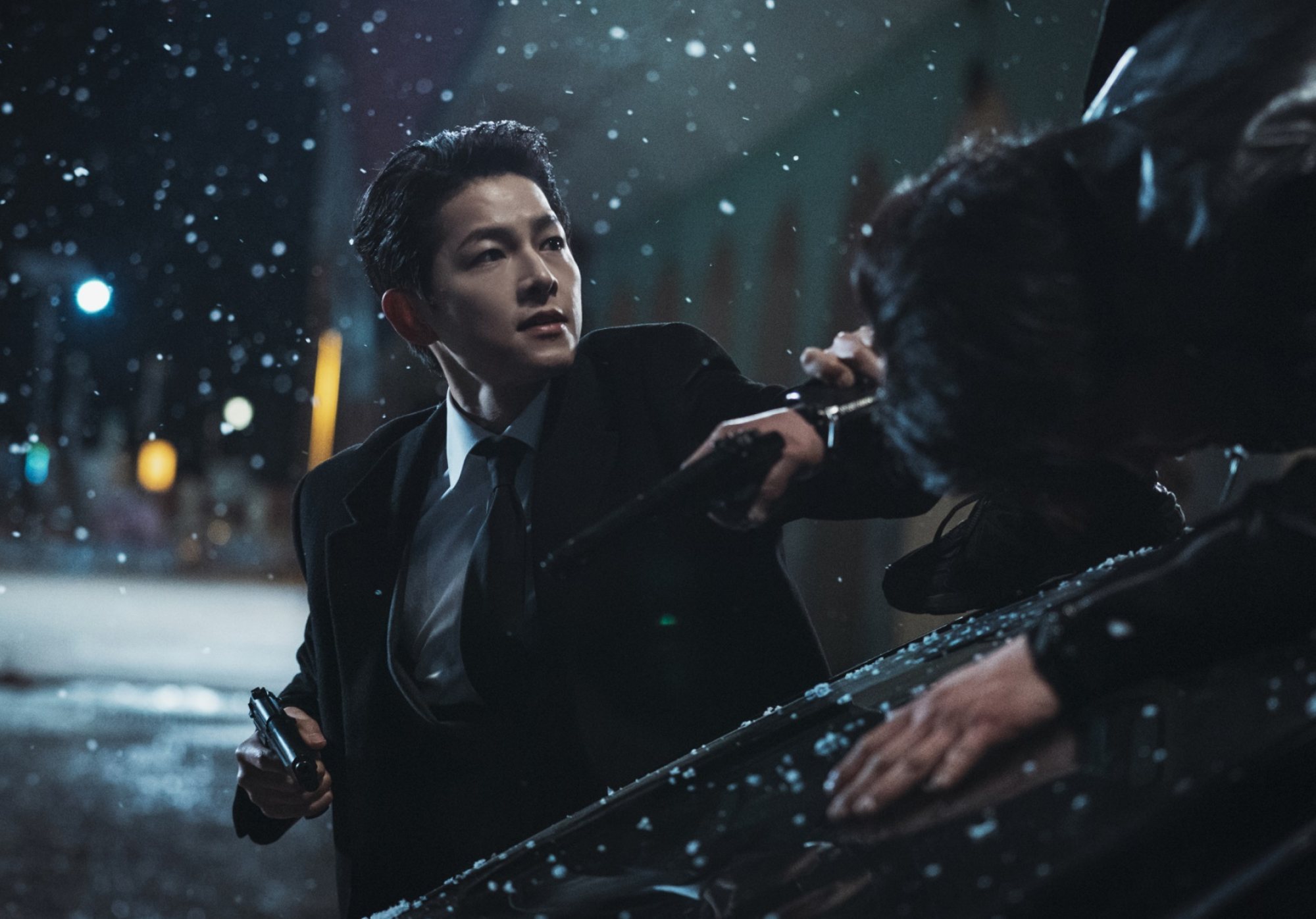
From Squid Game to Vincenzo and All of Us Are Dead, Korean dramas stoke the rage many feel about social elites and those who govern their lives
- Korean dramas have tapped into the anger many around the world feel about social inequality, and lately some have made no bones about stoking that anger
- K-drama producers capture the zeitgeist with shows like Vincenzo, in which the titular character tortures a corporate miscreant to death while we cheer him on
Ten years ago, it would have been unthinkable that Korean dramas would become one of the cornerstones of global entertainment. Classic romantic dramas defined the landscape then, and while these have become even more popular, along the way a new breed of K-dramas emerged.
These shows pit the meek against the mighty in stories that are allegories of our frustrations and struggles with the systems of control that oppress us.
Driven by rapacity and empowered by cronyism, the villains of Korean drama series strut through the halls of power, be they governmental or corporate (merely criminal organisations seldom pass muster these days), in worlds that mirror our own.
The familiar inequity of these worlds draws us in, and the gross iniquities perpetrated by their antagonists fan the flames of our anger at society and convert it into full-throttled rage.
These stories, which feed on something dark within us, have captured the global zeitgeist.
The 15 best K-dramas of 2021: Vincenzo, Squid Game and more

Unlike the avenging characters who shed blood before him, Vincenzo does not pay a price for his actions. The audience cheers him on, sharing in his bloodlust. Since he’s doing it partly on behalf of a group of disenfranchised characters – and by extension all of us watching at home – his vengeful execution is perceived to be justified and therefore leaves him with a more or less clean conscience.
This and other grisly interludes in a show that is for the most part broadly comic didn’t cause a problem for those watching it.

Their increasingly sadistic acts of violence, akin to public executions, provide entertainment to the masses. They are avengers who receive the public’s adulation.
With political apathy and distrust in governments on the rise around the world, people feel pretty helpless these days. Perhaps the popularity of fictional vigilantes like Vincenzo is merely testament to how viewers feel about the society they live in. They offer an escape where the real world doesn’t so readily provide one.

Compared to most Hollywood content, modern Korean dramas feel like a product of the social media age. Shows tap into the anxieties of their audiences by namechecking a litany of social grievances, but they often do so in superficial ways.
Fishing for views (instead of clicks or likes), many dramas deliberately seek to stoke our rage but fail to examine cause, much less imagine how to treat society’s inherent problems. They merely smash all the things that make us angry.

Other series are more opaque in their intentions. Recognising that social themes are popular, creators drop in allusions to whatever social phenomenon is current. In All of Us Are Dead, victims of school bullying become villains by default and the show can’t make up its mind if it wants to demonise or lionise the social elite.
In each case, their images were partly rehabilitated after the press latched on to the global popularity of the shows. But maybe Korean audiences had it right the first time. Global viewers can pretend that Korean dramas are fantasy, but local viewers know better.
In these confusing times, the dystopian worlds depicted in K-dramas are closer than ever to reality and the unchecked rage they channel is merely an unconscious extension of a darkening global psyche.

Squid Game, All of Us Are Dead, Vincenzo, D.P., Hellbound and Sweet Home are streaming on Netflix. The Devil Judge and Taxi Driver are streaming on Viu.

